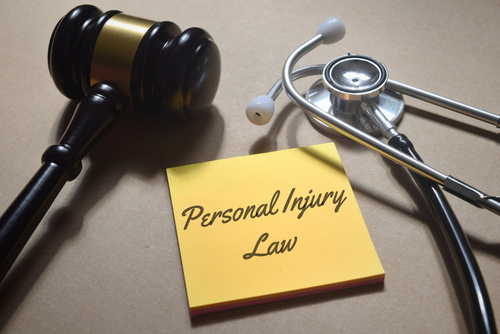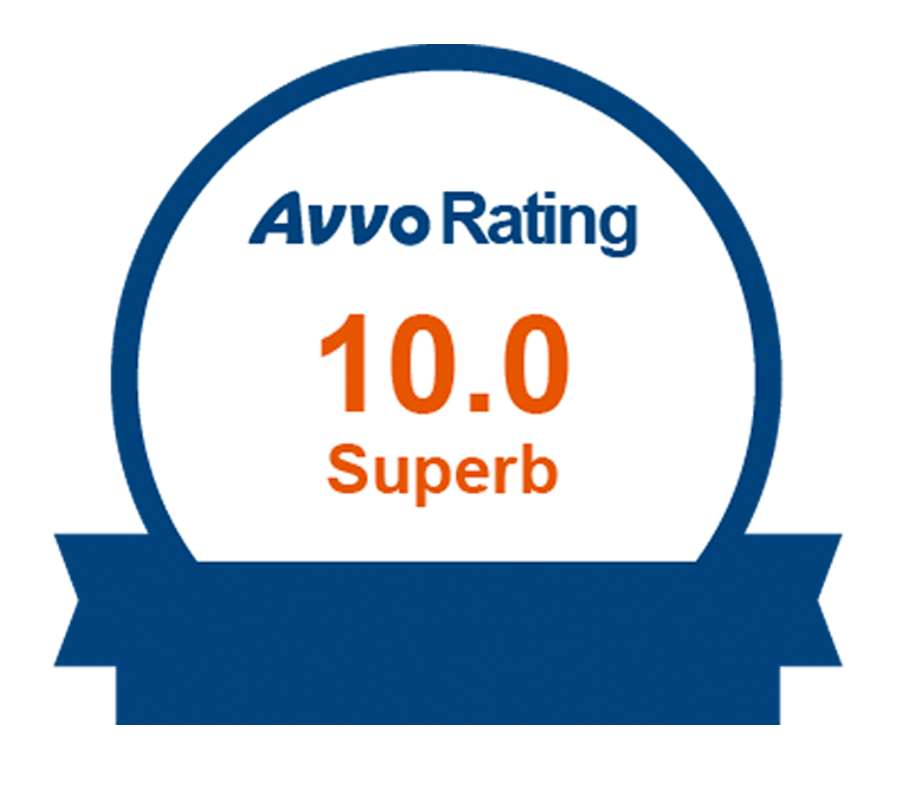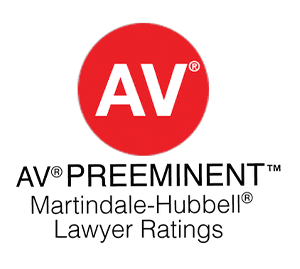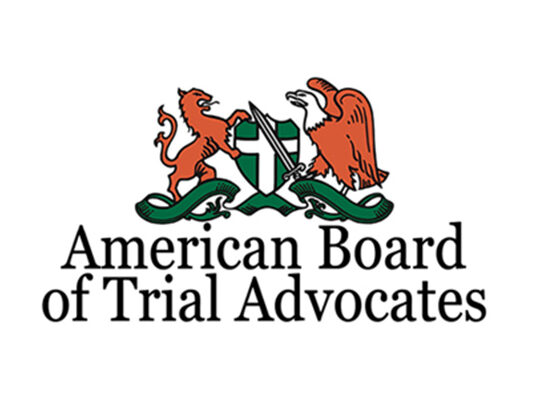Have you been injured by someone else’s fault or negligence? If so, you have the right to file a personal injury lawsuit.
However, it’s important to understand how the personal injury lawsuit process works. After all, this is a complex area of law, and without proper knowledge of what happens, you may not know what to expect.
When you are ready to pursue compensation from the negligent party, our Daytona Beach personal injury lawyers from Zimmet & Zimmet are ready to help. Learn more about the personal injury process and what to expect here.
Related Article: How Does Mediation In Personal Injury Lawsuits Work?
The Basics of a Personal Injury Claim
Some types of personal injury claims you can file include car accident claims, slip and fall accidents, and defective products.
In most situations, a claim for personal injuries will arise through one of the following ways:
- Negligence: Most motor vehicle accidents (MVAs) are caused by another party acting negligently or under the expected level of care. It’s worth noting that the burden for personal injury claims is on the plaintiff to prove the defendant was negligent.
- Strict liability: The party who is responsible for designing or manufacturing a product may not have the intention of injuring anyone. However, the law states they are liable if the product is defective and results in an injury.
- Intentional harm: Assaults in the type of intentional behavior that results in harm may be considered actionable via a personal injury claim.
Some of the most common types of personal injury claims seen today include:
- Motor vehicle accidents
- Defective commercial or consumer equipment
- Medical malpractice
- Toxic substances and workplace accidents
- Assault or false imprisonment
- Nursing home abuse
- Hospital abuse
Having help, advice, and guidance from Daytona Beach personal injury lawyers is beneficial when it comes to personal injury law. They can help ensure you take the right steps and avoid mistakes that may impact your settlement.
Related Article: Who Is Going to Pay My Medical Expenses Following My Car Accident?
Damages Awarded in Personal Injury Lawsuits
When you file a personal injury lawsuit, you receive monetary compensation called damages. There are different types of damages you can receive.
Economic or special damages provide compensation for any out-of-pocket, tangible costs. This includes lost wages, medical treatment, and hiring someone to help around the house while attempting to recover, along with other costs that you can prove with bills or receipts.
General or non-economic damages will compensate for diminished quality of life and pain and suffering. These types of damages cannot be proven with bills or receipts.
In the state of Florida, there is no cap on what you can receive for a personal injury claim. In the past, a statute capped the damages for medical malpractice cases at $500,000. However, this was ended in 2017 by the Florida Supreme Court. This occurred because it allowed a higher award when the plaintiff experienced catastrophic injuries. At this point, the court ruled that the law was unconstitutional.
Related Article: Is A Personal Injury Settlement Taxable?
Preparing for a Personal Injury Lawsuit
If you have experienced an injury and plan to file a personal injury lawsuit, you need to contact Daytona Beach personal injury lawyers immediately. We offer our clients a free initial consultation to discuss their cases. Making sure you are prepared for this meeting is recommended to make the most out of it.
Some of the information and documents you should bring with you to your meeting include the following:
- Accident and police reports
- Photos that show the location of your accident and any injuries you sustained
- List of names and contact information for the doctors, hospitals, and other healthcare service providers from whom you received treatment from
- Names and contact information for insurance companies that have contacted you regarding the incident and accident
It’s also smart to take along any notes or documents that can help you remember the details of your claim.
Now that you have a primer on personal injury law and meeting with an attorney, it’s time to dive into the states of the claim process.
Related Article: How Long Do You Have To File A Personal Injury Claim After A Car Accident?
Stages of the Personal Injury Claim Process in Florida
The process for handling personal injury cases in Florida is like how other states handle the process. It follows a set process, which includes:
Giving the Defendant Notice
The Daytona Beach personal injury lawyers you hire will create a demand letter that lets the defendant know you are making a claim due to an incident or accident. The letter will include a description of what happened and instruct the defendant that they should forward the letter to their liability insurance company. The next step is for the insurance company for the defendant to contact your attorney.
Settlement Negotiations
If the insurance company for the defendant contacts your lawyer, they can begin negotiations for a settlement. It’s worth noting that most personal injury cases are settled outside of the courtroom. However, your lawyer can move forward with a lawsuit if a settlement cannot be reached.
Summons and Complaint
If your attorney and the insurance company cannot negotiate a settlement, then your attorney can file a summons and complaint. This is what begins the lawsuit process.
Answer
The defendant (or their attorney) will then provide an answer that admits or denies the liability allegations made in the initial letter.
Discovery
Discovery is when both sides gather evidence. A common part of the discovery process is the deposition. This is something used by both sides. During a deposition, testimony is given by various parties who are involved in the situation. The goal is to gather as much evidence as possible related to the case.
During the discovery process, your attorney will send the defendant a list of questions or interrogatories. They may also request accident-related documents.
Your lawyer can also consult with medical experts or accident reconstruction experts during the discovery process. These experts will help your lawyer better understand your case and provide reports. If your case goes to trial, the experts consulted in this stage of the process may be called to testify on your behalf.
Motions
It’s possible for any party involved in the lawsuit to file a motion with the court requesting various relief. This includes having the lawsuit dismissed or protection from any unreasonable discovery requests or demands.
Pre-Trial Conference
When you file a personal injury lawsuit, the court will likely schedule a conference to bring the attorneys for the parties together in front of a judge. The goal is to settle the claim before going to trial. If no settlement is reached, then the case will move forward to trial.
The Trial
Your attorney and defense lawyer will present evidence to convince the jurors or a judge to make a decision regarding the case in favor of their client.
Usually, a personal injury claim will end with a settlement being negotiated. However, the stage when this happens will differ depending on the unique circumstances of your situation.
Collecting Your Settlement or Judgment
Once you reach a settlement with the other side or if the court enters a judgment in your favor, your attorney will handle the collection of and distribution of the funds. This includes the funds that you are entitled to.
Post-Trial Motions or Appeals
If a judgment is entered in your favor by the court, the defendant in the case can file a post-trial motion that requests the judgment is set aside. They may also reduce the total damages that are awarded by a jury.
The defendant in the case can also file an appeal. With this, they are requesting that a higher court review the case and determine if there were any legal mistakes during the trial. If a case is in the appeal stage, the parties can resume the settlement negotiations to help settle and close the case.
Related Article: How Do Car Accident Settlements Work?
Don’t Wait to Hire Daytona Beach Personal Injury Lawyers for Help with Your Personal Injury Case
If you have suffered an injury due to someone else’s negligence, you have the right to file a personal injury claim. It’s best to contact our Daytona Beach personal injury lawyers from Zimmet & Zimmet immediately after an accident occurs. We can help ensure that you get the best possible outcome for your case and receive the compensation you deserve. It all starts with a call to schedule an initial consultation with our legal team.
Read More











